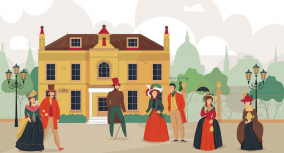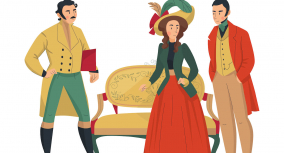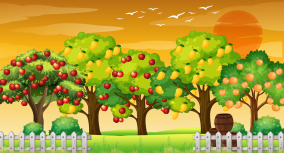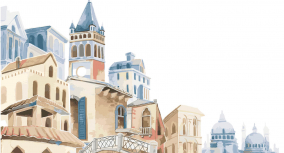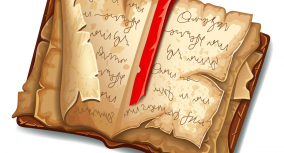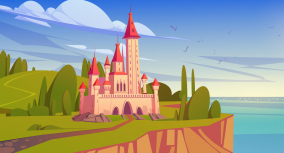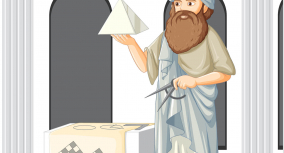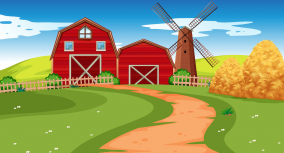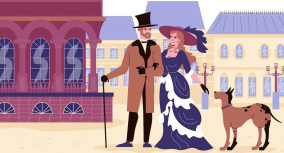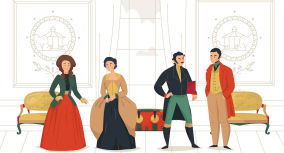Imagine that since childhood you have been told that you live in the best of all houses. The world around you is the best of all possible ones. But suddenly, the miracle dissipates, and you find yourself in the street without any means for existence. You will doubt the optimistic ideals, won’t you? But for Voltaire’s protagonist, it was just the beginning.
This Candide Study Guide will help you in the course of analytical reading.
It will answer all of your questions regarding the characters, themes, Voltaire’s philosophy, and social problems in the novella.
Candide Key Facts
Candide Study Guide: Articles
- The novel’s summary
This article contains a plot summary of Candide. An illustrated timeline and detailed chapter summaries are also to be found here. - Character analysis
Want to know more about Candide characters? Candide, Pangloss, Cunégonde, and other characters in Candide are analyzed in this article. - Candide themes
What is the key theme of the novel? Find here the answer to this question! Religion, optimism, and the ideas of Enlightenment are analyzed here. - Literary analysis
This section analyzes the principal symbols the author used in the book as well as its setting, irony, satire, and the ending’s meaning. - Essay topics and examples
Need to write an essay on Candide? We’ve collected best essay topics, questions, prompts, and examples for you on one page. - Candide Q&A
Looking for questions and answers about the novel? On this page, you’ll find the answers to the most pressing questions about Candide. Enjoy!
Historical Context of Candide
We should read Candide in the context of the society that existed in the middle of the 18th century. It was different from our modern world in many ways.
The government exerted immense influence on the Christian Church in Europe. The Jesuits were scattered and in a weak position. Meanwhile, all the lands pertained to the Church. Thus, the monarchy was interested in controlling all of them. It made the clergy corrupt and more involved in mundane issues than they had to be.
Candide describes certain events of the Seven Years’ War (1756 – 1763). France, Austria, Sweden, Russia, and Saxony fought against Great Britain, Prussia, and Hanover. The two Bulgar soldiers Candide meets in Chapter 2 wore blue, which means they represent the Prussian army. The Abars that appear by the end of the same chapter stand for the French people.
The Inquisition in Spain and Portugal were active in Voltaire’s times. Since 1478, this governmental institution has killed heretics. But along with those who did not believe in God, many other innocent people were ruthlessly murdered. Protestants, Jews, and all those who questioned Catholicism were tortured. Voltaire ironically describes these events in his works, showing the religious hypocrisy and futility of such spiritual efforts.
Candide is a signature text of the Enlightenment. Still, it criticizes some philosophers of the same literary period, notably Leibniz and his followers. This fact indicates that the Enlightenment never was a consistent movement. But all of its advocates supported the supremacy of reason above religion and the ideas of democracy.
